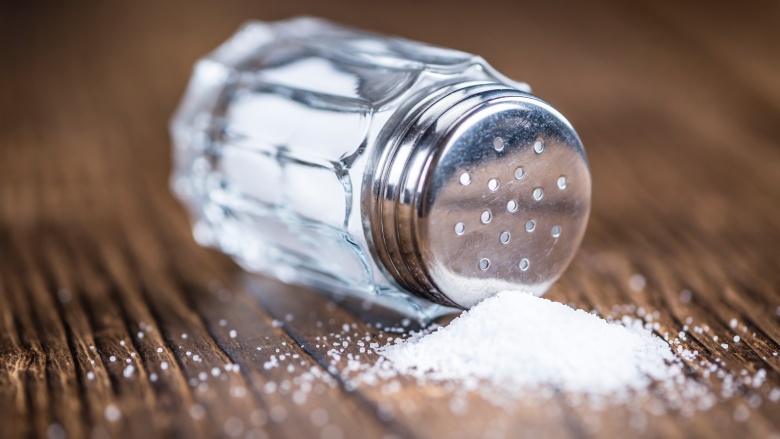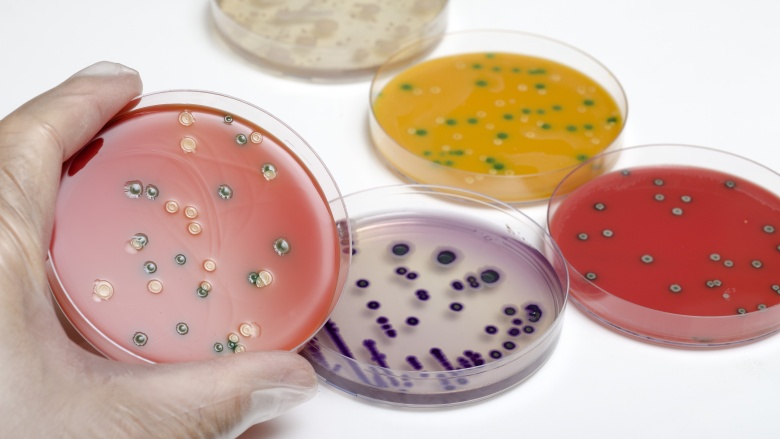The Dangers You Need To Know About Cold Cuts
Cold cuts make for an easy meal: just snag a couple slices from the fridge, slap them in some bread with a bit of salad, and pretty soon you'll be the brown-bag ruler of the break room. But if you're not careful, that minor workplace lunch victory could come at a price beyond whatever the deli clerk charged you. Cold cuts occupy a wide region in the middle of the food spectrum, from verging on fine cuisine to slumming it with junk food. But as you will see, when it comes to sliced meats, the dangers are definitely class-blind.
Sodium
Excessive salt in your diet will raise your blood pressure and increase your risk of heart disease. Salt is added to cold cuts to act as a preservative, as a seasoning, and also as a color enhancer. This is all great for the food industry sales figures, but when you consider the effects of excessive sodium on your health, the outlook isn't so sunny. It's not just the usual suspects like bologna and salami, either, because even higher-quality sliced meats are getting in on the act. When a single slice of meat can provide as much as 20 percent or more of your recommended maximum intake of sodium, your turkey sandwich might actually lead you to major health defects.
Fat
Some meats are fattier than others, but it probably won't come as a surprise to hear that salami, bologna, and other more processed meats are the worst offenders. A single slice of salami can contain over 10 percent of your recommended daily limit of saturated fat, and you know salami never travels alone. Saturated fats play havoc with your cholesterol level and, like salt, will put you at risk of heart problems and strokes. Other kinds of fats will help make your clothes shrink (among other things), which is bad for your self esteem, your clothes budget—and since you're carrying all that extra weight—your heart as well. In some cold cuts, the extra fat is easy to spot because it glistens on the surface of the slice, so when it comes to your health, shiny meat is a great, big, greasy red flag.
Corn syrup
Of all the illnesses you might be worried about getting from eating cold cuts, diabetes probably isn't high on the list. Unfortunately, you might have to move it up a few places. That's because one of the ingredients you may be consuming with your cold cuts is corn syrup. Corn syrup, also known as glucose syrup, is made from corn starch and is used to add sweetness, help the meat retain moisture, and sometimes just take up space as a filler. Unsurprisingly though, corn syrup doesn't just add flavor—it also adds calories, increasing the risk of unwanted weight gain, obesity, and all the myriad health problems that come with that deal.
Sodium nitrite
If you ignore how it's a type of salt, sodium nitrite might seem like a good thing to have in your sandwich. That's because one of its uses in the food industry is to prevent the growth of botulism-causing bacteria, and nobody wants to get botulism. Another reason for adding it is to make the meat look pink and appetizing, which is understandable from a marketing point of view at least, if not from any other. Unfortunately, studies have linked sodium nitrite in processed foods with an increased risk of developing several forms of cancer, as well as several other health conditions. This is believed to happen when sodium nitrite combines with various digestive ingredients in the gut, potentially forming carcinogenic compounds. This risk isn't limited to cold cuts either, but is associated also with bacon, sausages, and basically any other "processed" meat you care to point a fork at.
Listeria
For most of us, listeria is of fairly low concern. It largely affects only people with weaker immune systems like the elderly, small children, and pregnant women. However, although it is rarer than other foodborne bacteria like E. coli or salmonella, it's actually far more dangerous in a way, because listeria has the ability to continue growing, even at low temperatures. Most bacterial growth will slow down dramatically at the temperature inside refrigerators—which is why we use the things—but not listeria. This means that, if you have a packet of contaminated meat, and you keep it around for a few days longer than you should, the listeria can grow to dangerous levels. The problem is so great, the CDC has advised that vulnerable people shouldn't consume any processed meat that hasn't been heated to at least 165 degrees immediately prior to eating, and that includes cold cuts (or by that point, just cuts). The danger is increased if the deli counter puts off cleaning their meat slicer, since if they cut anything contaminated with listeria, any meat they cut on it afterwards will also pick up the bug.
Oh, and as for non-vulnerable people? They might be less at risk for severe illness, but they can still experience nausea, cramps, and diarrhea from eating listeria-contaminated meat. If that happens at work, the former ruler of the break room may be spending more time on the throne than they had bargained for.





